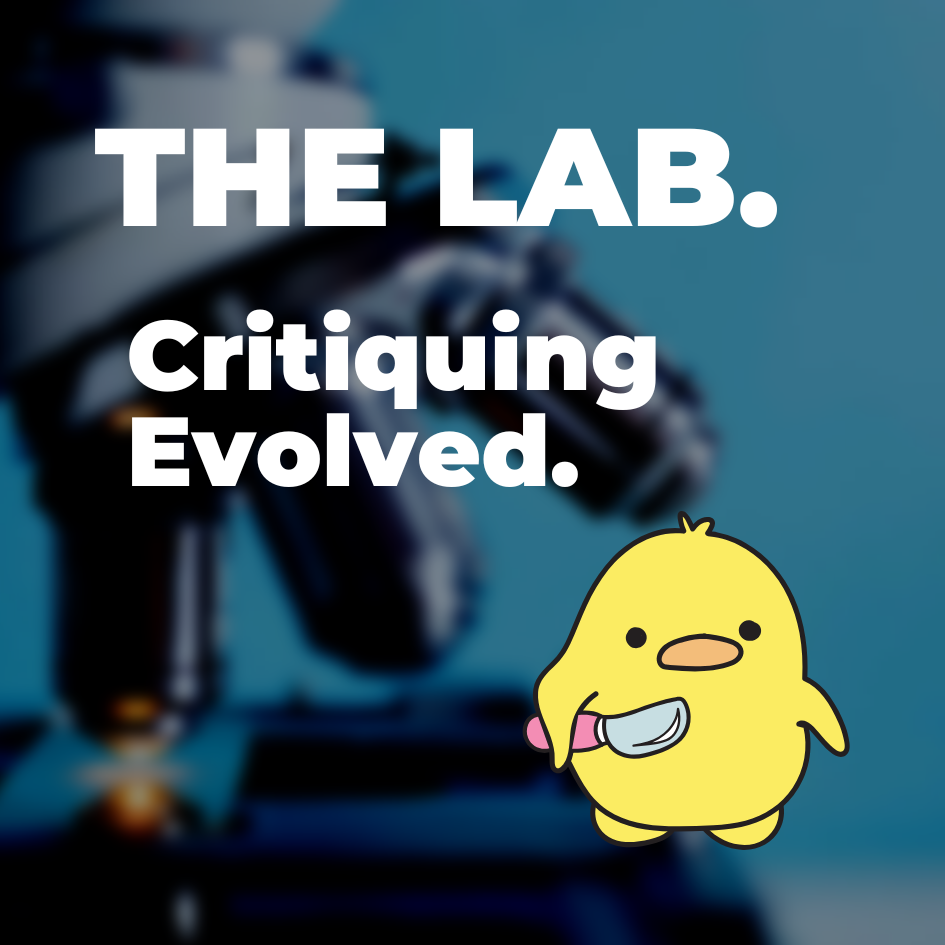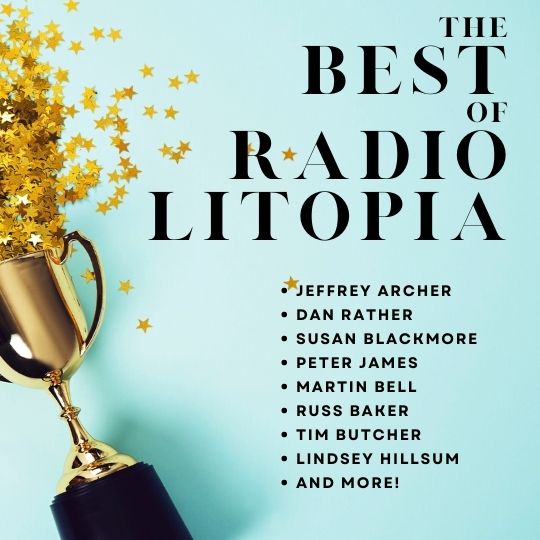The content for this video is reassuring:
Navigation
Install the app
How to install the app on iOS
Follow along with the video below to see how to install our site as a web app on your home screen.
Note: This feature may not be available in some browsers.
More options
Style variation
-
Café Life is the Colony's main hangout, watering hole and meeting point.
This is a place where you'll meet and make writing friends, and indulge in stratospherically-elevated wit or barometrically low humour.
Some Colonists pop in religiously every day before or after work. Others we see here less regularly, but all are equally welcome. Two important grounds rules…
- Don't give offence
- Don't take offence
We now allow political discussion, but strongly suggest it takes place in the Steam Room, which is a private sub-forum within Café Life. It’s only accessible to Full Members.
You can dismiss this notice by clicking the "x" box
You are using an out of date browser. It may not display this or other websites correctly.
You should upgrade or use an alternative browser.
You should upgrade or use an alternative browser.
Some misconceptions about writing
- Thread starter RK Wallis
- Start date
Invest in You. Get Full Membership now.
- Status
- Not open for further replies.
I'm a dirty drafter. I never knew there was a name for it. Dirty drafting stops me ever having writer's block.
- Thread starter
- #3
I’m definitely finding fast drafting useful. Connections in the plot comes easier, albeit that doesn’t stop in editing!
Serra K
Basic
Writing my first book, it took a few months to figure out a process that works for me. It was Alexa Donne who introduced me to the concept of zero drafting and now it's my best friend. The fantastic thing about it is that my zero draft is likely going to land at around 60-70K words, giving me a spare 30-50K words wiggle room when I come in for the first round of edits. I can focus on the skeleton of the story, leaving placeholders, comments etc and get to the end.
I'm a big fan of plotting, but I have to say that a lot of the finer details and sub-plots come through when I'm in the chair writing. Basically I'm a plotter on the couch and a pantser at the the desk.
Thanks for the great video @RK Capps !
I'm a big fan of plotting, but I have to say that a lot of the finer details and sub-plots come through when I'm in the chair writing. Basically I'm a plotter on the couch and a pantser at the the desk.
Thanks for the great video @RK Capps !
I'm listening to Peak on audible, think it was free. It's how experts become the best at what they do. One thing is your brain develops a short hand code to transition from short-term memory to long. The more you learn, the more pieces to the patterns you can form, therefore the better the markers or codes that build even more complex patterns. And the better you are at what you're trying to become best at. The brain does dirty drafts in a way, then tumble polishes it into a final draft. The more practiced and proficient you become-the faster.I'm a dirty drafter. I never knew there was a name for it. Dirty drafting stops me ever having writer's block.
Last edited:
Invest in You. Get Full Membership now.
csrickard
Basic
It took me years, and I do mean years, to find the process that works for me. I was doing everything wrong for the way my mind works. I tried plotting, I wrote linearly, I edited as I wrote. And it was such a struggle, getting anything on the page was nothing short of hard labor.
Part of my current process sounds like what the video calls a skeleton. What's interesting is that I started calling it that myself when I did it. The other thing I found odd but holds true for me, is that I write better and with more ease when I use a pencil and paper instead of directly on the laptop. I don't quite understand it.
Now I use a pencil/notebook and just start writing. I write whatever scene is uppermost in my mind, regardless of where it falls in the novel (so no longer linearly). I write non-stop, sometimes writing the same sentence two or three times in a row if I think of better phrasing as I'm writing it (no longer self-editing). If I don't know all of the details in the scene, I just write place holders within the scene (ie, I'll write "they had an argument" instead of showing the argument) and then keep writing what occurs after the argument.
Once finished, I have a skeleton - all of the bones are there and then I need to go back and fill out the details. Doing that is much easier for me at this point. It's also at this point that I type the skeleton on my laptop. I edit as I transcribe, so removing multiple sentences and selecting/modifying the best one, adding the details of the argument, etc. Once that's done, I have a good first draft.
Part of my current process sounds like what the video calls a skeleton. What's interesting is that I started calling it that myself when I did it. The other thing I found odd but holds true for me, is that I write better and with more ease when I use a pencil and paper instead of directly on the laptop. I don't quite understand it.
Now I use a pencil/notebook and just start writing. I write whatever scene is uppermost in my mind, regardless of where it falls in the novel (so no longer linearly). I write non-stop, sometimes writing the same sentence two or three times in a row if I think of better phrasing as I'm writing it (no longer self-editing). If I don't know all of the details in the scene, I just write place holders within the scene (ie, I'll write "they had an argument" instead of showing the argument) and then keep writing what occurs after the argument.
Once finished, I have a skeleton - all of the bones are there and then I need to go back and fill out the details. Doing that is much easier for me at this point. It's also at this point that I type the skeleton on my laptop. I edit as I transcribe, so removing multiple sentences and selecting/modifying the best one, adding the details of the argument, etc. Once that's done, I have a good first draft.
I do the dirty draft with pen and notebook too. I think it helps me write whatever I want to write because for sure no one will see this version (unless I become JK Rowling famous and can put them in a museum display!!). I have great fun just writing without caring how good or crap it might be or if any makes it to the computer.It took me years, and I do mean years, to find the process that works for me. I was doing everything wrong for the way my mind works. I tried plotting, I wrote linearly, I edited as I wrote. And it was such a struggle, getting anything on the page was nothing short of hard labor.
Part of my current process sounds like what the video calls a skeleton. What's interesting is that I started calling it that myself when I did it. The other thing I found odd but holds true for me, is that I write better and with more ease when I use a pencil and paper instead of directly on the laptop. I don't quite understand it.
Now I use a pencil/notebook and just start writing. I write whatever scene is uppermost in my mind, regardless of where it falls in the novel (so no longer linearly). I write non-stop, sometimes writing the same sentence two or three times in a row if I think of better phrasing as I'm writing it (no longer self-editing). If I don't know all of the details in the scene, I just write place holders within the scene (ie, I'll write "they had an argument" instead of showing the argument) and then keep writing what occurs after the argument.
Once finished, I have a skeleton - all of the bones are there and then I need to go back and fill out the details. Doing that is much easier for me at this point. It's also at this point that I type the skeleton on my laptop. I edit as I transcribe, so removing multiple sentences and selecting/modifying the best one, adding the details of the argument, etc. Once that's done, I have a good first draft.
For my full story, I'm a plotter. I play with an outline until I think it's good enough then I write (mainly) within those parameters. Of course, if the characters start arguing with me, I will revisit my outline.
- Status
- Not open for further replies.
Further Articles from the Author Platform
Café Life Tag Cloud
2025
agent
author
authors
blog
book
books
cafe
calls for submissions
challenge
character
christmas
competition
conferences
contest
creative writing
creativity
editing
fantasy
feedback
fiction
inspiration
life
literature
litopia
motivation
music
new
new member
novel
philosophy
poetry
publisher
publishing
reading
review
romance
self-publishing
sentence
shakespeare
short story
stories
story
storytelling
technology
words
world
writer
writers
writing
Similar threads
- Replies
- 4
- Views
- 371
Thought for the Day
Writing is part intuition and part ...
- Replies
- 1
- Views
- 342
- Replies
- 4
- Views
- 439
- Replies
- 0
- Views
- 449
Thought for the Day
My writing process is chaos. I usually start ...
- Replies
- 0
- Views
- 376
Latest Articles By Litopians
-
What’s in a game?
6When my son was a toddler, he threw the mother of all tantrums at my childless friends’ house. I ...
-
The Shadow Durian
As a lifelong foreigner, I’ve learnt that being open to new things smooths the path considerably. ...
-
Goodbye Eeyore, Hello Tigger
Granny was churchy. She grew up in an era that saw living by the Bible as an important British chara ...
-
21st Century Song of Summer
It’s sobering to think that while summer is celebrated in some parts of the world with mus ...
-
Falcon Theory
“So,” said Goethe to his friend Johann Peter Eckermann, “let us call it a Novelle, for what i ...
-
The Joy of Lit Mags
While my first novel is tentatively making its way towards agents who already have too much to read, ...
-
Advertising and Social Media
There has been much discussion in writing circles about how much a writer has to self-promote these ...



